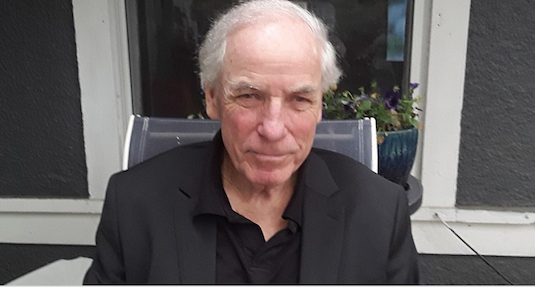Jack Cashill, it seems, is determined to remain on the wrong side of history. His June 23 WorldNetDaily column is yet another defense of Derek Chauvin and an attack on the man he killed, George Floyd:
Chauvin is not your average murderer. He did not seek out his victim. By aggressively resisting a valid arrest, George Floyd sought him.
Chauvin did not go to the crime scene voluntarily. The dispatcher sent him. Once at the scene, he found two rookie cops struggling to subdue the muscular 223-pound Floyd in the back of the police vehicle.
[Judge Peter] Cahill concedes as much. “Although George Floyd was handcuffed, he had still been able to resist and to prevent three police officers from seating him in a squad car. …”After assessing the scene for a minute, Chauvin did not strike Floyd or tase him. He offered to roll down the car windows and turn on the air conditioning to alleviate Floyd’s anxieties, not routine behavior for a murderer. None of this made Cahill’s filing.
Cashill added, “While helping Chauvin restrain Floyd, Officer Thomas Lane said, ‘I am worried about excited delirium or whatever.’ Chauvin responded, ‘That’s why we have him on his stomach.'” Cashill didn’t mention the fact that there’s considerable doubt about whether “excited delirium” is even a thing, or just an excuse for police to justify aggressive or violent responses to a suspect.
Cashill also wrote regarding Floyd: “Chauvin had no way of knowing that the perp – soon to become victim – had two dangerously blocked arteries or that he had ingested enough fentanyl to kill a man three times over and enough meth to finish the job.” In fact, medical professionals involved in the case testified during Chauvin’s trial that Floyd did not die or a fenanyl or meth overdose, and that any fentanyl and meth in Floyd’s system were well below lethal levels.
Cashill went on to suggest that Floyd deserved to die: “Floyd was sentenced to five years. He served less than four. Floyd had been arrested nine times. Chauvin just once, but Chauvin could very well serve more prison time than Floyd.”
He concluded by laughably likening Chauvin to black victims of racism: “Like the Scottsboro Boys and others, Derek Chauvin made the mistake of being of the wrong race in the wrong place at the wrong time. And unless Cahill acknowledges as much, history will not forgive him.” Unlike the Scottsboro Boys, Chauvin received a fair trial, was not judged by racists, and actually committed the crime he was accused of.
